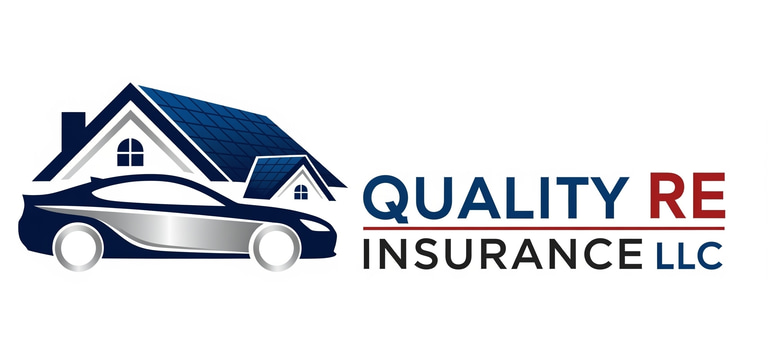☀️ Protecting the Sunshine State: A Guide to Commercial Insurance in Florida
☀️ Protecting the Sunshine State: A Guide to Commercial Insurance in Florida
Tariq AbouAdma
11/4/20253 min read
Starting or operating a business in Florida is an exciting venture, but the unique risks of the Sunshine State—from severe weather to specific state regulations—make robust commercial insurance not just a recommendation, but a necessity. Navigating the complex world of Florida commercial policies requires understanding what's legally required and what's strongly advised to protect your assets from potential disaster and liability.
Florida's Mandated Commercial Insurance Coverages
While Florida law does not mandate every type of business insurance, it does enforce requirements for two critical areas to protect employees and the public.
1. Workers' Compensation Insurance
This is the most strictly enforced insurance requirement in the state. It covers medical costs and lost wages for employees who are injured or become ill as a direct result of their job duties.
Construction Industry: Employers with one or more employees, including owners who are corporate officers or LLC members, must have workers' compensation coverage.
Non-Construction Industry: Employers with four or more employees, including owners who are corporate officers or LLC members, must have workers' compensation coverage.
2. Commercial Auto Insurance
If your business owns, leases, or rents vehicles, or if employees use personal vehicles for business tasks (like making deliveries or driving to job sites), you must carry a commercial auto policy.
Minimum Requirements: All commercial vehicles must carry minimum liability coverage, including $10,000 in Personal Injury Protection (PIP) and $10,000 in Property Damage Liability (PDL).
Higher Requirements: Commercial motor vehicles with a Gross Vehicle Weight (GVW) of 26,000 pounds or more require significantly higher combined liability limits.
Essential Recommended Coverages for Florida Businesses
Beyond the legal mandates, every Florida business owner should consider these foundational policies to address the state's unique liability and property risks.
1. General Liability Insurance (GL)
Often called "slip-and-fall" coverage, GL protects your business from the most common third-party claims, even though it's not mandated by state law. It covers third-party bodily injury (e.g., a customer trips over a rug in your store), property damage (e.g., an employee accidentally breaks a client's window), and claims of personal/advertising injury (e.g., libel or slander). Many commercial landlords and client contracts will require you to carry GL coverage.
2. Commercial Property Insurance and Flood Coverage
Given the annual threat of hurricane season, protecting your physical assets is crucial.
Commercial Property: This covers your business's physical location (if you own it) and its contents—equipment, inventory, furniture—against perils like fire, theft, and wind damage.
Commercial Flood Insurance: Crucially, standard commercial property policies exclude flood damage. With a high number of properties in flood zones, a separate Commercial Flood Insurance policy (often through the National Flood Insurance Program) is essential for water damage protection.
3. Professional Liability Insurance (E&O)
Also known as Errors and Omissions (E&O) insurance, this is necessary for businesses that provide professional advice or services. It covers claims that your professional advice, error, or failure to perform caused a client to suffer a financial loss.
4. Business Owner's Policy (BOP)
A Business Owner's Policy (BOP) is an excellent option for small to medium-sized Florida businesses. It efficiently bundles General Liability and Commercial Property coverage, often at a lower premium than purchasing them separately.
Key Factors Driving Florida Insurance Costs
Commercial insurance costs in Florida tend to be higher than the national average due to unique geographical and regulatory factors:
Catastrophe Risk: Frequent and severe hurricanes, floods, and storms lead to increased property and liability loss exposure, driving up premiums for windstorm and commercial property coverage.
Location: Businesses in coastal or designated flood-prone areas pay significantly more for property and flood insurance.
Building Age: Older buildings, especially those not compliant with modern, stricter Florida building codes for wind mitigation, face higher rates.
Legal and Claims Environment: The state's litigation landscape and high costs associated with claim repairs can lead insurers to raise rates and be more selective about the policies they offer.
Final Takeaway: While state requirements are a starting point, a comprehensive insurance strategy in Florida must focus heavily on General Liability and catastrophe-related property protection (Wind and Flood) to effectively manage risk in the dynamic environment of the Sunshine State.
Resources
Insurance
Offering comprehensive coverage in Florida.
Contact
321-222-3116
336 Wilshire BLVD Suite 274-229 Casselberry FL 32707
© 2025. All rights reserved.
Understanding Homeowner Insurance and Its Relevance to Home Finance in Florida
Commercial Property Insurance in Florida Is a Must—Here’s What You Need to Know
☀️ Protecting the Sunshine State: A Guide to Commercial Insurance in Florida
The Florida Roof: A Homeowner's Guide to Types, Lifespan, and Crucial Insurability
Orlando Real Estate: A Guide to Neighborhoods, Character, and What to Know
Orlando Zip Code 32828: A Complete Guide for Homeowners and Renters
Living in ZIP Code 32792: A Complete Guide to Housing, Schools, and Lifestyle
Finding Your Dream Home: A Guide to Living in Zip Code 32789
Discover Oviedo: Why This Charming Florida Community is a Perfect Place to Call Home
🛡️ Insuring a Piece of History: Mitigating Risk in Central Florida's 1960s Homes
💰 The Uninsurable Risk? Navigating Termite Perils in Central Florida’s Property Market
🏙️ Living in 32801: A Guide to Downtown Orlando Life & Protecting Your Home
🛡️ Safeguarding the Rural Dream: Life and Real Estate in Zip Code 34739
The Hidden Key to Closing Your NACA Loan: Insurance, Inspections, and the Right Team 🏠
🌪️ Slash Your Premiums: The Power of Wind Mitigation Inspections in Florida
🛡️ The 4-Point Inspection: The Secret to Securing Affordable Florida Home Insurance
☂️ Is Your Home Covered? The Truth About Mold and Property Insurance in Florida
🛡️ Protecting Your Piece of Paradise: A Guide to Home Insurance in 32777
